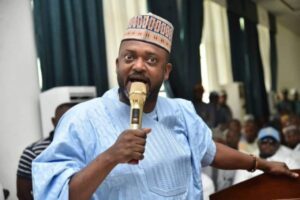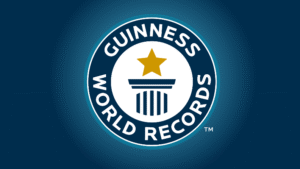FG targets 44 million Nigerians for health insurance enrolment by 2030

The Federal Government has announced plans to enrol at least 44 million Nigerians into the national health insurance scheme by 2030, as part of efforts to expand access to affordable healthcare and reduce the nation’s high out-of-pocket spending.
Minister of State for Health, Dr. Iziaq Salako, disclosed this on Monday in Abuja during the opening of a four-day National Health Financing Policy Dialogue themed “Reimagining the Future of Health Financing in Nigeria.” The dialogue brought together policymakers, development partners, health financing experts, civil society groups, the private sector, academia, and health insurance representatives to strengthen the country’s health financing system.
Salako explained that President Bola Tinubu is committed to improving healthcare financing through increased domestic resource mobilisation and reduced dependence on foreign aid. He noted that Nigeria’s health expenditure as a share of GDP has grown from 3.4 per cent in 2013 to 5.03 per cent in 2024.
Highlighting key reforms, Salako said the National Health Insurance Act 2022 makes health insurance compulsory for all Nigerians and expands coverage beyond the previous five per cent. The Act also established a Vulnerable Group Fund to cater to those unable to pay premiums. Similarly, the Basic Healthcare Provision Fund (BHCPF) created by the 2014 National Health Act allocates one per cent of federal consolidated revenue to healthcare for the poor and vulnerable. He revealed that the ministry is considering seeking legislative approval to raise BHCPF funding to at least two per cent.
“Under the Presidential Performance Agreement, one of our major deliverables is to enrol at least 44 million Nigerians into the national health insurance scheme by 2030. This will significantly reduce the current out-of-pocket expenditure, which remains unacceptably high at about 70 per cent. We are committed to strengthening the framework, expanding coverage, ensuring sustainability, and tackling challenges such as inadequate funding, systemic inefficiencies, fragmented programming, and poor data quality,” Salako said.
He stressed that the government’s goal is to guarantee that every Nigerian can access quality healthcare without financial hardship.
Director-General of the National Health Insurance Authority (NHIA), Dr. Kelechi Ohiri, reaffirmed the agency’s commitment to expanding financial protection for Nigerians and reducing reliance on direct payments. He explained that the dialogue aims to strengthen accountability, attract private sector participation, deepen subnational engagement, and build sustainable partnerships.
ATTENTION: Follow 9jaReporters on Instagram for a chance to win ₦100,000 in our Top Fans Challenge!
JOIN NOW to participate and stand a chance to win exclusive prize ons, free airtime, and exciting gifts!
FOLLOW US TODAY! DON’T MISS OUT!
“At the NHIA, equity is central to our mission to ensure that no Nigerian—especially the poor and vulnerable—is left behind. Achieving sustainable and equitable health financing requires collective effort from government, civil society, development partners, the private sector, and academia,” Ohiri said, urging participants to work towards concrete outcomes and a clear roadmap.
Also speaking, Coordinating Minister of Health and Social Welfare, Prof. Muhammad Pate, stressed the need for Nigeria to scale up domestic investment in health, warning that reliance on foreign aid is not sustainable. He called on civil society organisations to hold stakeholders accountable and support the drive toward Universal Health Coverage.




